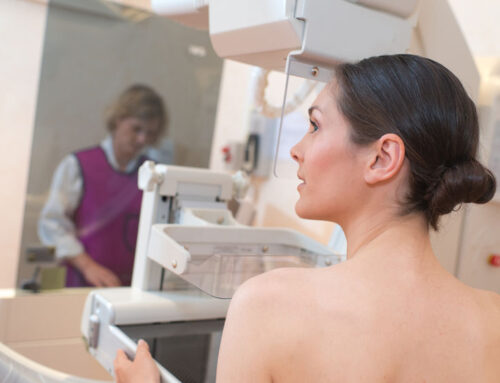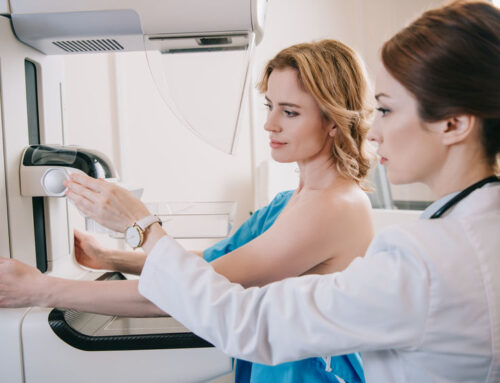Managing Menopause Without Medication
Typically starting at ages 45-55, menopause is defined as the point in time 12 months after a woman’s last period. Women who undergo menopause can experience various symptoms, including hot flashes, vaginal dryness, weight gain, and trouble sleeping. Hormone replacement therapy (HRT) can help relieve the symptoms of menopause, but some women prefer to avoid medication during this life stage.

Can supplements help?
Although data is limited, some evidence suggests that certain dietary supplements can help control menopause symptoms. In particular, black cohosh, flaxseed, and vitamin E have all been purported to help. Soy is another option that can be obtained from a supplement or the diet. Soy contains isoflavones, which are plant estrogens. The consistent addition of this form of estrogen can reduce symptoms such as night sweats.
Cool down
To control hot flashes, think cool. Iced drinks, air conditioning, or even a cold shower can be a woman’s best friend during this stage of life. Caffeine and alcohol, on the other hand, can warm the body and should be limited or avoided. Since hot flashes can be unpredictable, layered clothing is another helpful approach. The ability to easily remove a sweater can help women cool down quickly. At night, thin sheets and a fan can keep the body cool.
Work out to sleep better
Regular exercise benefits all individuals, and menopausal women are no exception. Pilates, yoga, long walks, and swimming are all great options. Committing to working out can help with sleepless nights and prevent weight gain. For the best results, stick with a consistent schedule and aim for the recommended 150 minutes of physical activity each week.
Focus on fruits and veggies
A healthy diet full of fruit and vegetables is another great way to reduce the symptoms of menopause. Most fruits and veggies are low calorie, which helps with weight gain during the menopause years. A healthy diet can also prevent bone loss, another common problem for women later in life. In particular, adding calcium and vitamin D to the diet can help prevent osteoporosis. Milk, cheese, yogurt, green leafy vegetables, tofu, and beans are excellent sources of calcium, while vitamin D is best obtained by spending time outside. A vitamin D supplement can help meet daily requirements if natural sunlight isn't feasible.
The HRT solution
HRT offers significant benefits for women experiencing menopausal symptoms, aiming to alleviate discomfort and improve quality of life. By replenishing estrogen and, in some cases, progesterone levels that decline during menopause, HRT can effectively reduce hot flashes, night sweats and vaginal dryness. HRT has been shown to support bone health, reducing the risk of osteoporosis and fractures that become more prevalent post-menopause. For many women, HRT can also aid in managing mood swings and depressive symptoms, contributing to an overall enhancement in emotional well-being.




